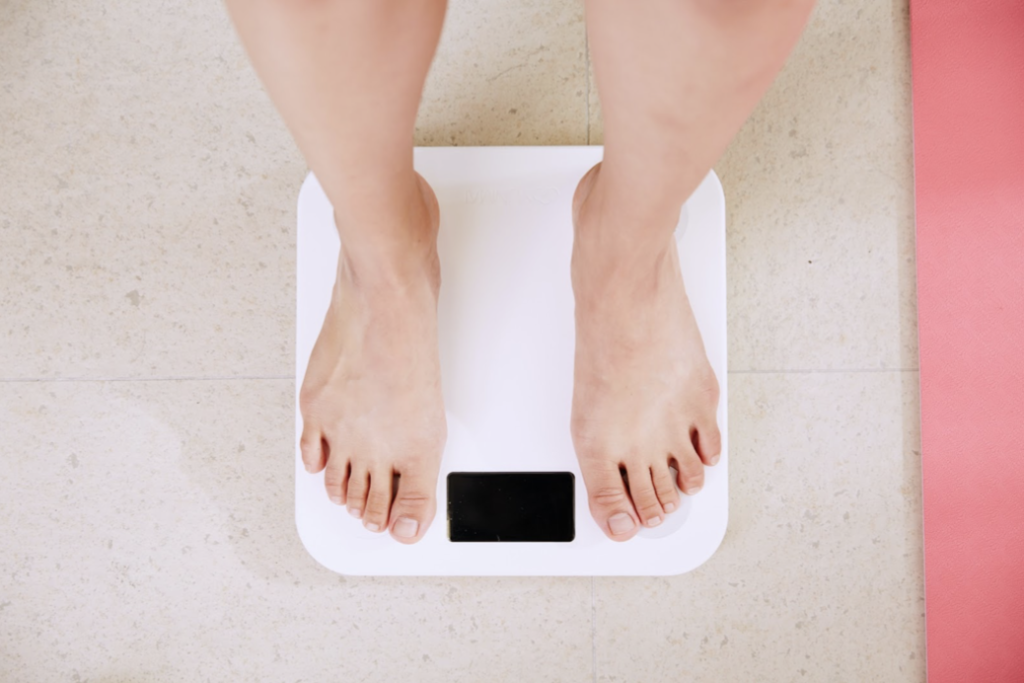Have you experienced unexplained weight loss since being diagnosed with Parkinson’s disease (PD)? You’re not alone. Almost half (48.6%) of PD patients unintentionally lose weight [1] at some stage during their PD journey.
Maintaining a healthy weight plays a major role in staying fit and strong throughout your journey with PD. In this article, we’ll discuss why it’s important to address weight loss, possible causes and what you can do about it.
How weight loss can impact your life
Weight loss can have a significant impact on the quality of life of people living with PD and can lead to additional health complications further down the road. Inadequate food intake can result in vitamin deficiencies that may increase the risk of fatigue, frailty and infection. Fatigue and lethargy may cause a decrease in physical activity, which is crucial for alleviating many of the physical and mental symptoms associated with PD.
There is evidence to suggest that early weight loss can increase the severity of PD symptoms [2]. This is possibly due to the involvement of the neuroendocrine system or the gastrointestinal nervous system. Further research is needed to understand the relationship between weight loss and PD progression.
Common causes of weight loss
There are many factors that may cause or contribute to weight loss:
- Some PD medications can cause nausea, which may suppresses appetite.
- The motor symptoms associated with PD, including tremors, rigidity and muscle cramps, can make it more difficult to eat.
- It’s extremely common for people with PD to lose their sense of taste and smell [3]. This can make eating less enjoyable and lead to decreased caloric intake.
- Swallowing often gets increasingly difficult as PD progresses and can interfere with eating and contribute to weight loss.
- Dietary protein may interfere with PD medications like levodopa . This can make it tricky to intake protein and get adequate nutrition. For more information regarding your diet and PD see our earlier article. More information can be found here.
- Non-motor symptoms such as depression and apathy may cause people with PD to lose their appetite.
- Some people with PD may feel uneasy in their slow eating habits and stop eating prematurely.
While weight loss is common for those living with PD, prolonged, unexplained weight loss is not. It’s important to talk to your doctor if you experience this symptom, as it may be a sign of other medical issues.
Proven strategies for combating weight loss
1. Get a swallow exam
Dysphagia – or difficulty swallowing – is a very common symptom that affects more than 80% of PD patients [4] during the course of the disease.
Weight loss is often linked with dysphagia. So, if you’ve noticed that you’ve begun to lose weight, it may be a good idea to book a swallow examination. If dysphagia is discovered, your doctor may provide you with specific foods and meal preparation techniques to facilitate easier swallowing. Physical therapy may also be recommended to help improve swallow function.
2. Talk to a dietician
Make an appointment with a dietician – ideally, one who has experience with PD – to discuss weight loss mitigation strategies. Depending on your needs, your dietician may recommend a menu of nutritious, calorie-dense foods that will support your health and wellbeing goals, and enable you to maintain a healthy weight.
3. Soften your foods
Dry foods such as bread, toast, crackers and cookies can get more challenging to eat as swallowing becomes more difficult. To improve swallow function, try dunking your food in milk or decaffeinated tea or coffee, sip a drink after each mouthful to keep your mouth moist and add sauces to your meals to keep them soft.
4. Make a plan with friends and family
If cooking and shopping have become more of a challenge, you might be tempted to start skipping meals. This can lead to rapid weight loss. Instead, perhaps consider working with family and friends to stick to a regular, healthy meal plan.
5. Think about mental health
Eating isn’t just a physical act. Certain mental health conditions – including depression, which is found in about 30-40% of all people with PD [5]- can contribute to loss of appetite. Be sure to talk to your doctor about treatment options, which typically include psychotherapy and/or antidepressant medications.
Unlocking a greater quality of life
Here at Orbit, we’re committed to empowering people with PD through groundbreaking digital health innovations. We believe in personalization of care because we know that every person living with Parkinson’s is different. With Neptune, we offer you the ability to objectively and continuously view your motor states (i.e. OFF, ON, and Dyskinesia) and treatment response. In doing so, we hope to empower you to better understand how various factors, whether that’s your medication, your diet and exercise, and more, can play in your motor symptom control.
To keep up to date with all the latest developments at Orbit, sign up for our newsletter.



